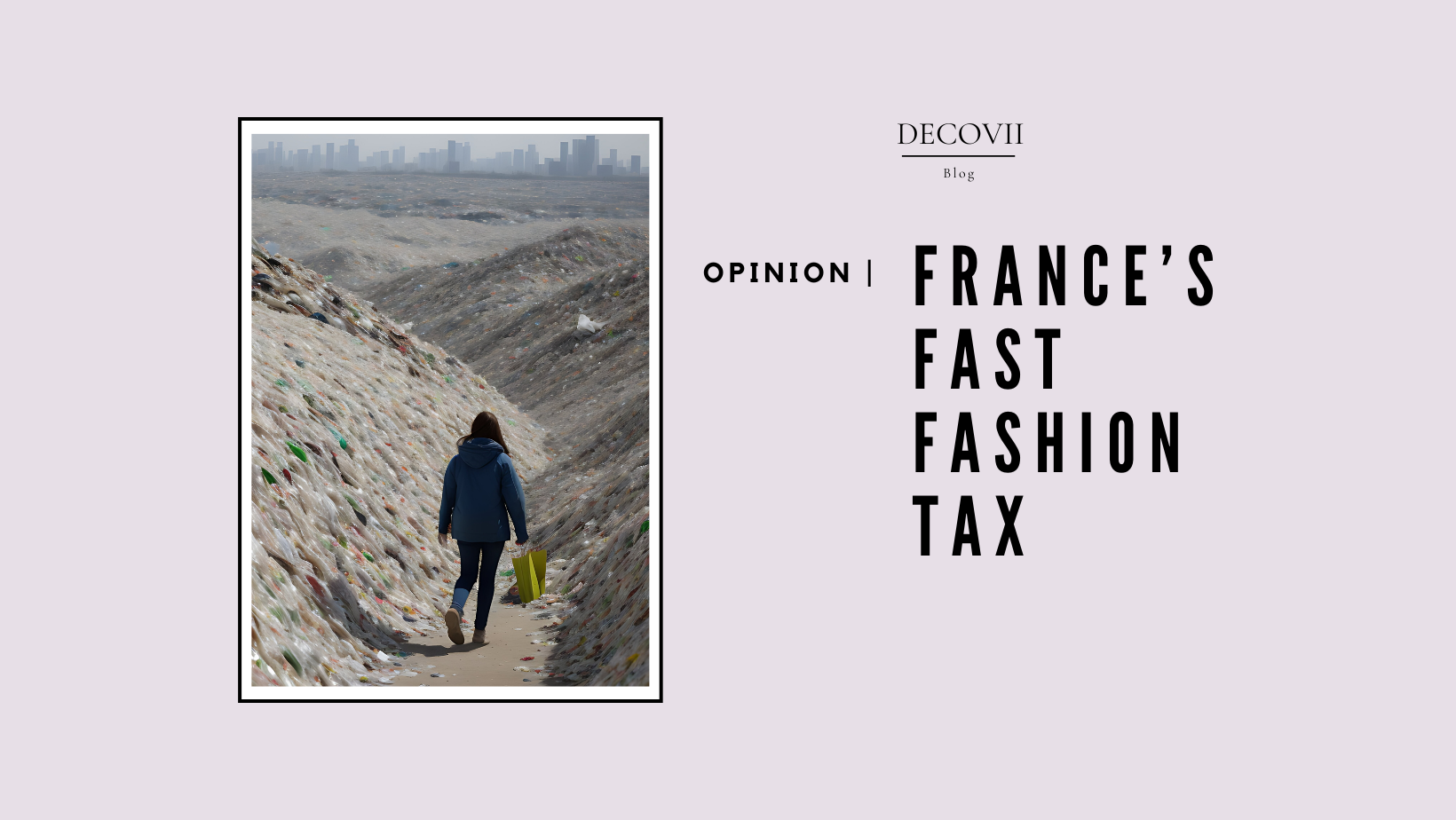While scrolling instagram, I came across an article in BoF covering France’s potential Fast Fashion Tax, where an up-to €10 per item tax will be implemented. For me, as someone who does care about the environment and how humans negatively impact the environment, I think ways in reducing destruction of habitat are always something to really consider in our everyday lives. In typical internet fashion, one goes straight to the comment section, and when I did, there was an assortment ranging from strong approval for this tax, to basically saying that this is just terrible and a tax on the poor. Immediately gears started turning in my brain on this commentary; I wanted to express my thoughts (hello! :)) and throw my two cents into the mix.
First thoughts, I think fast fashion (FF) is overall bad. I think of it is a cash grab for companies, selling garbage in the guise of accessibility and affordability. From a short-term perspective, those on the lower end of the financial spectrum (which I am there at the moment) have easy access to the ever-changing fashion trends without completely destroying their wallets. The issue is, we are being sold cheaply items that are incredibly low quality. How many times has a newly purchased article fallen apart after the first wash? The chances of getting a poorly made item are so high in FF, it is disrespectful when one hears this method gives “access” to fashion. It will only look good for a short amount of time before you need to invest in the same product again. This isn’t to say, luxury brands are the go-to, they are just as susceptible to FF quality but at such a higher cost.
Second, more long term, the amount of waste and byproducts that get produced, it’s astounding. The chemicals that go into waterways to make these massive amounts of clothing, the gasoline it takes to transfer products to stores (and out of them, after the season ends) and the amount of material that get tossed after use… it is an incredibly wasteful and damaging cycle. When there are comments talking about “taxing the poor”, it’s the poor who will get directly affected by this process. The wealthy can afford to be located away from the damaged ecosystems and landfills.
Thirdly, FF is not ethical, no matter how a company tries to hide it. It is like watching the Wizard of Oz, as the the guy is trying to distract everyone, “Don’t look at the man behind the curtain!” As obvious as there is a guy behind the curtain, human rights issues are occurring. (No matter the brand trips that say otherwise *side eyeing that controversy). It is a slap in the ethical consumer’s face when third world countries (and some first world factories…) are taking advantage of human labor and animal resources, all in the means of creating a large amount of poor-quality items.
It is a system that needs to change, it is just a matter of figuring out how. My dream would to create a brand that truly is ethical, sustainable without sacrificing quality and accessibility. But, at the moment it is just a dream. For now, we as consumers have to do our due diligence and understand what we are buying. Just as smoking is not good for one’s health, neither is fast fashion and the more we can move towards a slow fashion model, the better.
